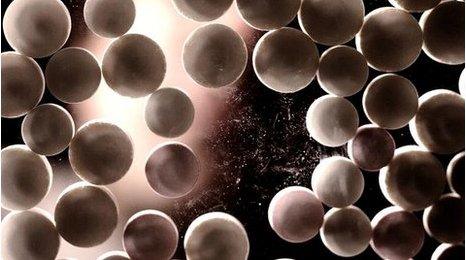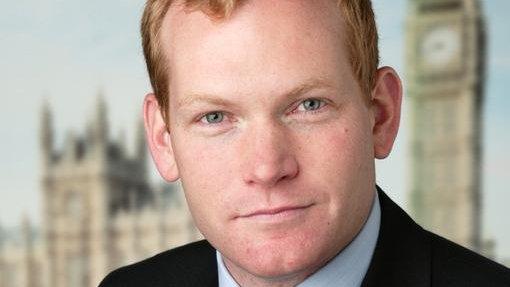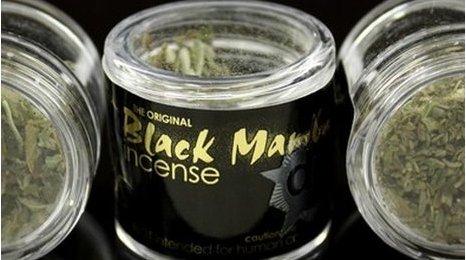Calls to government for tougher laws around legal highs
- Published
Jessica Skinner says legal highs are 'just as dangerous' as drugs
There are calls for the government to bring in tougher laws on legal highs.
Police and trading standards say that current legislation doesn't go far enough and there are worries temporary bans on new substances could actually be making the industry more dangerous.
The government says it is dealing with the problem and is not complacent about the issue.
The UK is the biggest market for legal highs, also known as new psychoactive substances, in the EU.
According to the United Nations office on drugs and crime, almost 700,000 15 to 24-year-olds in the UK have experimented with these drugs and at least 40 deaths last year were linked to them.
The minister for crime prevention, Jeremy Browne, said: "The government is leading the international response to this market, outlawing not just individual drugs but whole families of related substances which have the potential to cause harm."
The drugs are brand new substances made specifically to mimic illegal drugs like cannabis and ecstasy but they are chemically different enough to get around the law.
The supplier just needs to put on a "not for human consumption" sticker.
However, unlike illegal drugs, doctors have no idea what effect they have on the body.
Paul Bunt is the drug strategy manager for Avon and Somerset Police and was working at this year's Glastonbury festival.
"It's very difficult, we obviously operate mainly under the mis-use of drugs act.
"These substances in most cases fall outside of that act so it's very difficult for us to do anything about them. The law isn't quite there yet".
Inside a legal highs testing lab
Jessica Skinner, 18, started taking legal highs a couple of years ago.
She says she was snorting mystery white powders and taking pills she bought from her local head shop and says she thought they were safe.
"I thought if something is on the shelf it must be tested," she said. "You buy it from a shop and you obviously think it's better for you."
It's often left to local trading standards to try to deal with suppliers.
There are also concerns that the government's temporary class drug orders, where new particularly toxic drugs are banned quickly, could actually be resulting in more potent drugs ending up on the market as chemists invent new drugs to get around the latest ban.
Sammie Wood-Johnson, 18, has experimented with a legal copycat version of cannabis.
"It was like an out of body experience, I was tripping and I was hallucinating," she said.
"In my head there was this scenario going on where I was getting sunk into this mattress and dying."
Colin Tyrie is an NHS drugs adviser in Manchester and says it is hard for staff to spot signs of legal high abuse.
"We're starting to get reports from A&E departments asking for help and advice about these types of substances," he said.
"People go into A&E who don't want to say they've taken these drugs, even though they're legal, they're more likely to say they've drunk too much."
Watch the full report on Newsnight on 3 July at 10.30pm on BBC Two.
Follow @BBCNewsbeat, external on Twitter
- Published29 May 2013

- Published1 November 2012

- Published1 November 2012
